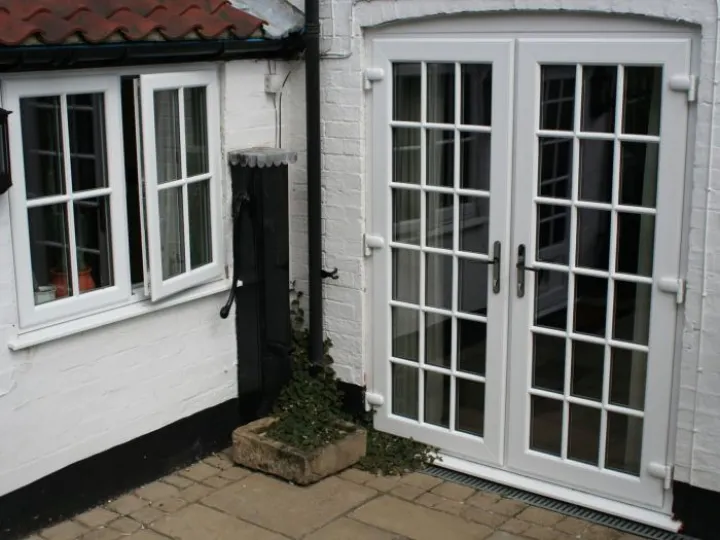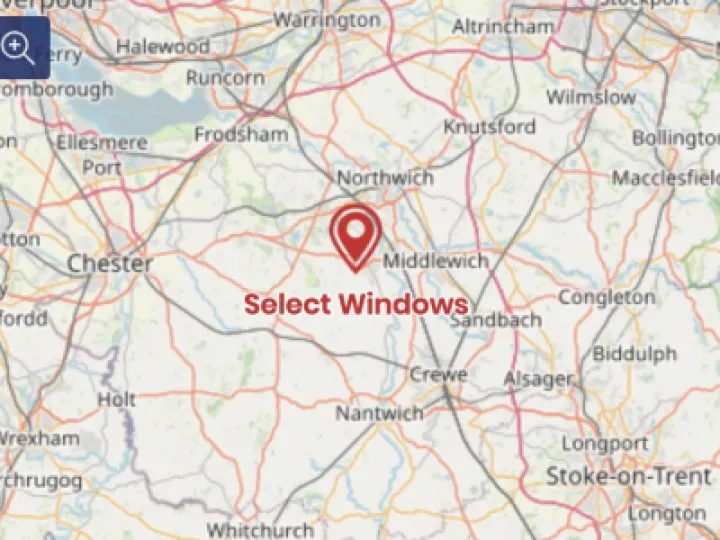PVCu or uPVC? Terms explained
Many window suppliers and installers will offer uPVC or PVCu windows, and customers may need clarification about the difference between the two. There is no difference except when different window suppliers choose where to put the 'u' at the beginning or the end.
So, what's the difference between uPVC and PVCu? Why are there two terms for the same window, and why doesn't everyone use one or the other? The term is an acronym for unplasticised polyvinyl chloride. It is the same type of plastic used to sheath electric cables and make inflatable boats and castles.
However, unlike bendy PVC inflatables, uPVC windows are rigid. This is because inflatables made of PVC have added a plasticising agent to the mix, while windows use plastic without the special agent – hence, 'unplasticised'.
The type of uPVC used in window manufacturing is smooth, shiny, and waterproof, just like an inflatable, but it is also strong and rigid, making it an ideal material for constructing window frames.
Advantages of uPVC in window manufacture
There are many other advantages to manufacturing windows from uPVC . The material is exceptionally long-lasting and needs little maintenance. It has a distinct advantage in this eco-aware time of being eminently recyclable.
Unlike timber window frames, uPVC windows do not need regular repainting. They must withstand a wide range of temperatures, from hot summer days to freezing winter nights and wind and rain throughout the year. They do not rot when wet, and they are cheaper to produce than aluminium window frames. Windows, after all, are subject to a lot of abuse.
Why use the term PVCu at all?
German manufacturers first made rigid PVC windows. They quickly caught on when they were introduced to Britain, along with the boom in double-glazed windows. In this country, the term uPVC was used to describe this wonder material as English usually puts the adjective before the noun; hence, it is unplasticised PVC.
However, in most European languages, the adjective follows the noun (e.g. a French house in French is maison francais), so this type of plastic window was called PVCu. Britain tended to fall in line with European use when it joined the EU, but the original British usage continued. Technically, the strictly correct term is PVC-u, so no one uses it correctly.
In fact, PVC-u is not employed in the manufacturing of windows and doors anyway. Stabilisers and additives are always added to the mix to help with colour, add UV light resistance, stop yellowing, and prevent them from getting brittle with age.
What's the advantage of PVCu?
We use PVCu in the manufacture of windows, doors, conservatories, and sun lounges for a large variety of reasons. Modern PVCu comes in various colours and finishes that are highly weather-resistant and low maintenance.
PVCu windows do not warp or bend and will not rot, no matter how damp and humid the conditions are. The material is durable and robust, has high impact resistance and insulation properties, but can be easily reshaped at high temperatures to make it highly recyclable.
More on uPVC materials
Taking care of uPVC
uPVC or aluminium?
How long does uPVC last?
Flush sash windows
CALL 01606 863553
for new uPVC windows & doors
Select Window Systems
Phone: 01606 863553
Email: hello@swsonline.co.uk
Visit: Unit 2, Woodford Court, Winsford, Cheshire, CW7 2RB
Cheshire doors and windows.
Window and door installations across Cheshire.
Visit Our Cheshire Showroom
Disclaimer
Select Window Systems accepts no responsibility or liability for any damages or costs of any type arising out of or in any way connected with your use of this website. Select Window Systems cannot be held liable for any actions taken in reliance on any published content, which is for information purposes only.


